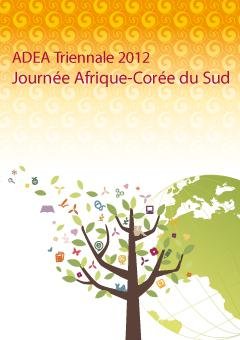
Ouagadougou, 11 February 2012. On 12 February in Ouagadougou, Burkina Faso, the participants in the ADEA Triennale, including a number of African ministers, will be taking part in a day of dialogue and exchange of experience between Africa and Korea in the field of education and training.
The purpose of the meeting, held on the eve of the 2012 ADEA Triennale, is to share with African ministers of education the path travelled by Korea, which rose from its level of development inthe 1960s to its current position as one of the world’s ten leading economies by focusing on research, education and training.
A ministerial delegation arriving for the occasion from Korea will describe for the African decision-makers, representatives of civil society and other actors in the educational system how a country not particularly well endowed with mineral and natural resources became a global economic and industrial power by developing its human capital.
“The Koreans argue very clearly that the foundation of their success has been education and training. They have quite obviously succeeded in developing a country that has few raw materials by training and educating its people and giving them the skills and knowledge that explainKorea’s present success, with giants such as Samsung and other leading multinationals”, declared Hamidou Boukary, the ADEA Secretariat’s Senior Education Specialist.
Following a number of presentations on education in Korea and the Korea Institute of Science and Technology, three sessions are planned. The first, on “Lifelong Learning and Community Learning”, will focus on Korea’s very substantial experience of 60 years of lifelong learning.
The second session, entitled “Science, Technology and Higher Education”, will look at the role of science and technology in Korea’s economic development, along with trends in the country’sscientific and technological policy and in higher education.
The third, dedicated to vocational training, technical education and digital learning, will give anoverview of Korea’s development of technical education in junior and senior secondary schools, based on detailed case studies. This session will also allow participants to examine the planning and development of Korean national policy with respect to information and communication technology (ICT) in the educational system.
“The Koreans said one thing to us very clearly: we do not want to give you money, we prefer to share our experience with you, the experience that enabled us to get where we are today”, Mr.Boukary said.
“Our response was to suggest that they come and explain to us the policies and strategies they applied to build an education and training system that boosted their human capital, made it possible to transform their economy and contributed to social development.”
“During the day, Korean researchers will present some unpublished studies we requested ofthem”, he added.
Following the three thematic sessions, attendees will come together in a plenary session and subsequently in a round-table discussion on “The Lessons of Korea”, which will be closed by ADEA’s Chair, Dzingai Mutumbuka.
Another day session was held on Saturday, devoted on to dialogue and consultation with the African Diaspora in order to hear its point of view and examine its contribution to educational development in Africa.
These two gatherings precede the ADEA Triennale, which will take place from 13 to 17 February in the International Conference Center of Ouagadougou. More than 800 participants are expected, including 60 to 70 African ministers of education, training and other sectors.
Press contacts:
- Thanh-Hoa Desruelles, External Relations and Communication, ADEA,t.desruelles@afdb.org, Tel.: +216/ 7110 3432 (office), +216/ 98 41 98 87 (cell)
- Aliou Goloko, Press consultant, aliou.goloko@goal-communications.com Tel.: 00 226 77 858073
- Log in to post comments
